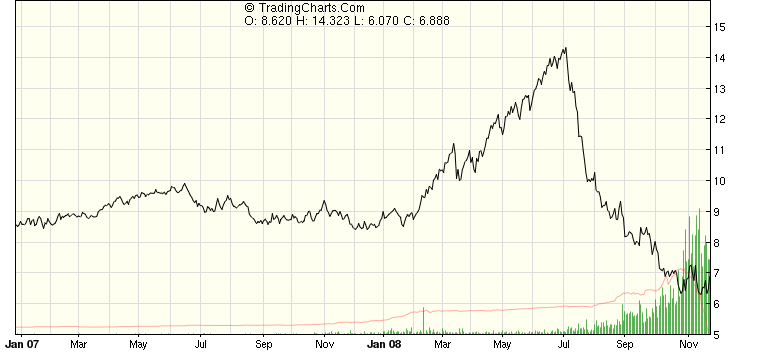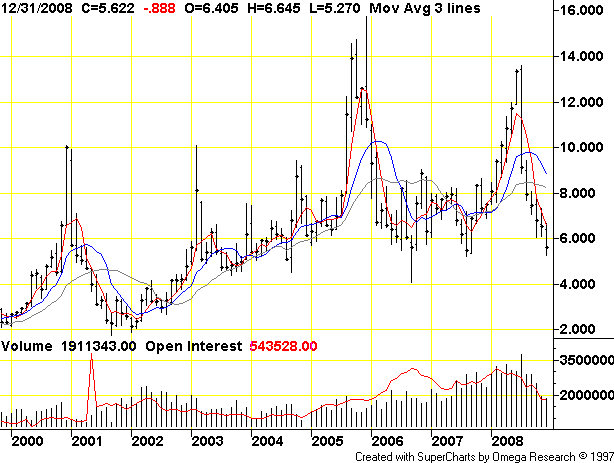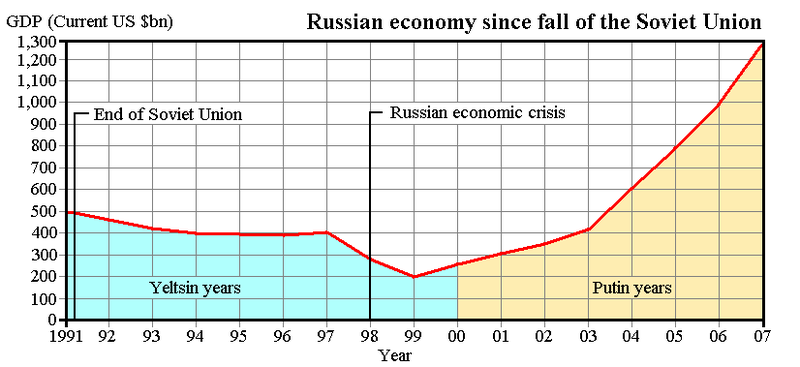The news today out of Russia was that a solution to the problem has been reached. There's an argument to be made, however, that this is just a superficial and/or temporary fix.
This is a good explanation of the root of the problem:
Ukraine used to get its gas allocation from Soviet planners and continued to expect the same after independence. When Russia first tried to get payment for its deliveries in the early 1990s, it failed. When it first cut off gas to Ukraine to enforce payments, Ukraine simply tapped the gas sent for export purposes; when European buyers howled, Russia relented and restored gas supplies without having managed to get paid by Ukraine. This has gone on. Yet somehow the gas continues to flow every year.
This problem is now repeating itself. Despite the apparent solution, the conflict may not be over yet. Here's why.
Russia has financed its recent success with the profits from selling off oil and gas reserves at the high prices of 2008. The recent drop, however, is severe:

The long-term picture is even more interesting:

Clearly, gas prices are heading toward a price valley. If the drop is sustained, Russia could be heading back to the bad old days of 2000-1. Compare the chart below, of the performance of the Russian economy since the fall of the Soviet Union, to the gas price chart above. The periods which saw the lowest gas prices - 1999 and 2001 - corresponded with times of low growth, if not outright crisis.

What else is going on? Well, Russia is looking at a huge budget deficit next year because the assumed oil price was $95 a barrel. (To give an idea of the relative size of the fluctuation, consider that the Russian federal budget could go from a surplus of 5% of GDP to a deficit of 5% of GDP in 2 years!) So it's going to be tough for the government to enact a Keynesian stimulus package - investors aren't as willing to buy the Russian bonds that would be used to pay for economic stimulus as they are to buy American bonds. (For proof of this, check out the spread between the interest rate on US treasuries and Russian government bonds - a measure of the perceived risk of these investments. Before a speculative frenzy in December, the latter had yields of between 7.6 and 11.3 percent. T-bills are at 3 percent or less.
Meanwhile, Ukraine is experiencing a prolonged political crisis. Its government is basically surviving on the strength of a loan from the IMF. Much like Russia, its former solvency was based on high commodity prices which have since taken a nosedive.
So here's the punch line: Russia actually needs the money from Ukraine, but the latter can't afford to pay! As things stand now, Ukraine pays less than half of what Europe pays per cubic meter of gas. Russia wants to raise the price, but both are in some pretty serious financial trouble. Thus, the dispute seems to be more a function of economics than of Russian belligerence, despite the serial occurrence of this dispute. It's also partly about downward pressure on supply caused by Russia's chronic underinvestment in its infrastructure, as an op-ed in the Washington Post on the 2006 version of this dispute points out (h/t CFR).
As the link at the top indicates, a tentative deal appears to be in place. This appears to be a rough compromise at best. While it might deal with Ukraine's alleged diversion of gas intended for consumption in Europe, disagreements about both the cost of the gas paid to Russia and the transit fee paid to Ukraine remain essentially unresolved. While it's hard to say how financially significant any gas diversion might be, ultimately the durability of the settlement will rest upon this unknown figure.
This is a revised and expanded version of a post that first appeared on Black's Bailiwick.